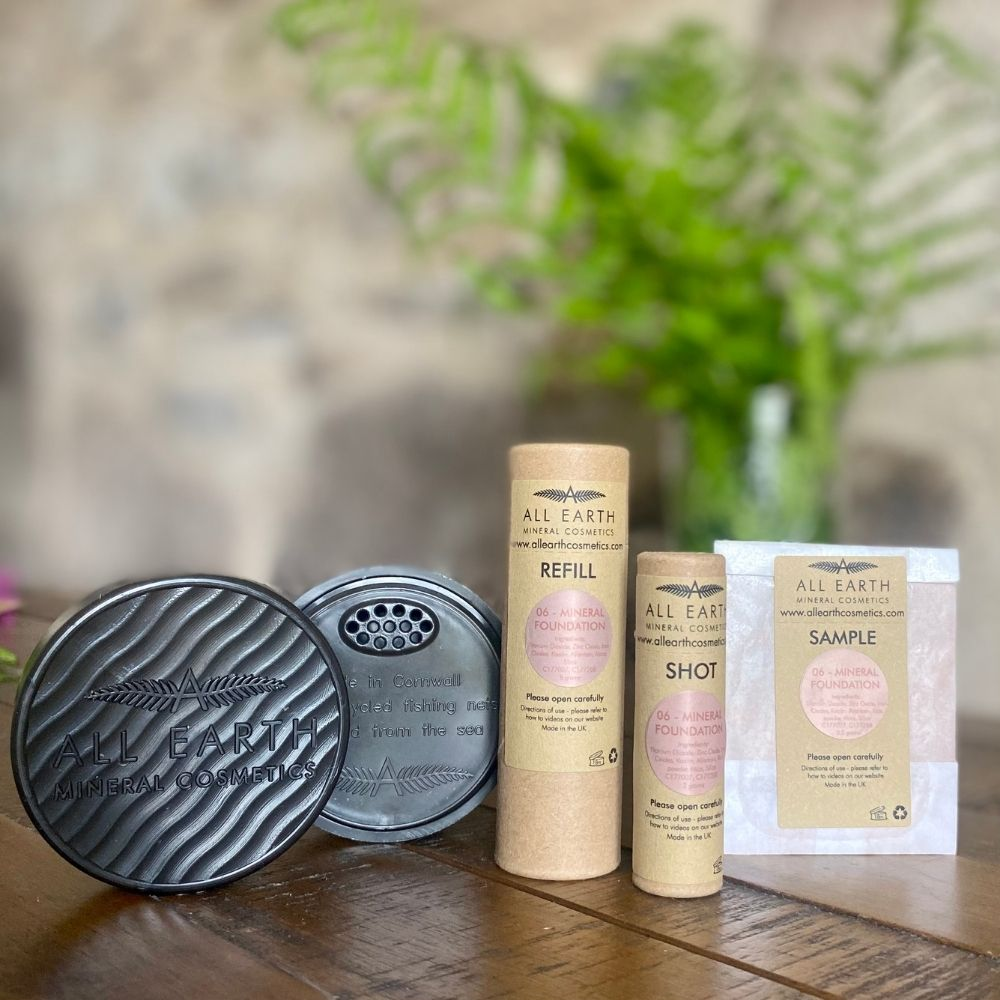Seep (plastic-free cleaning cloths & sponges)

SEEP is a fabulous brand, which makes plastic-free alternatives to nylon cleaning cloths and green-topped scrubby sponges. From pop-up sponges to scouring pads, this company makes quality items, all sold in zero waste packaging. Use with their natural rubber gloves.
Use with plastic-free cloths and sponges. Choose Unscented dishwash and cleaners for pregnancy/nursing and when cleaning/washing baby/pet bowls or if cleaning (citrus oils are toxic to pets).
Never mix vinegar or lemon juice with any bleach (causes toxic gas). For half-full bottles of chemical liquids, don’t pour down drain (dispose of at your local tip).
Seep Eco Sponge Cloths
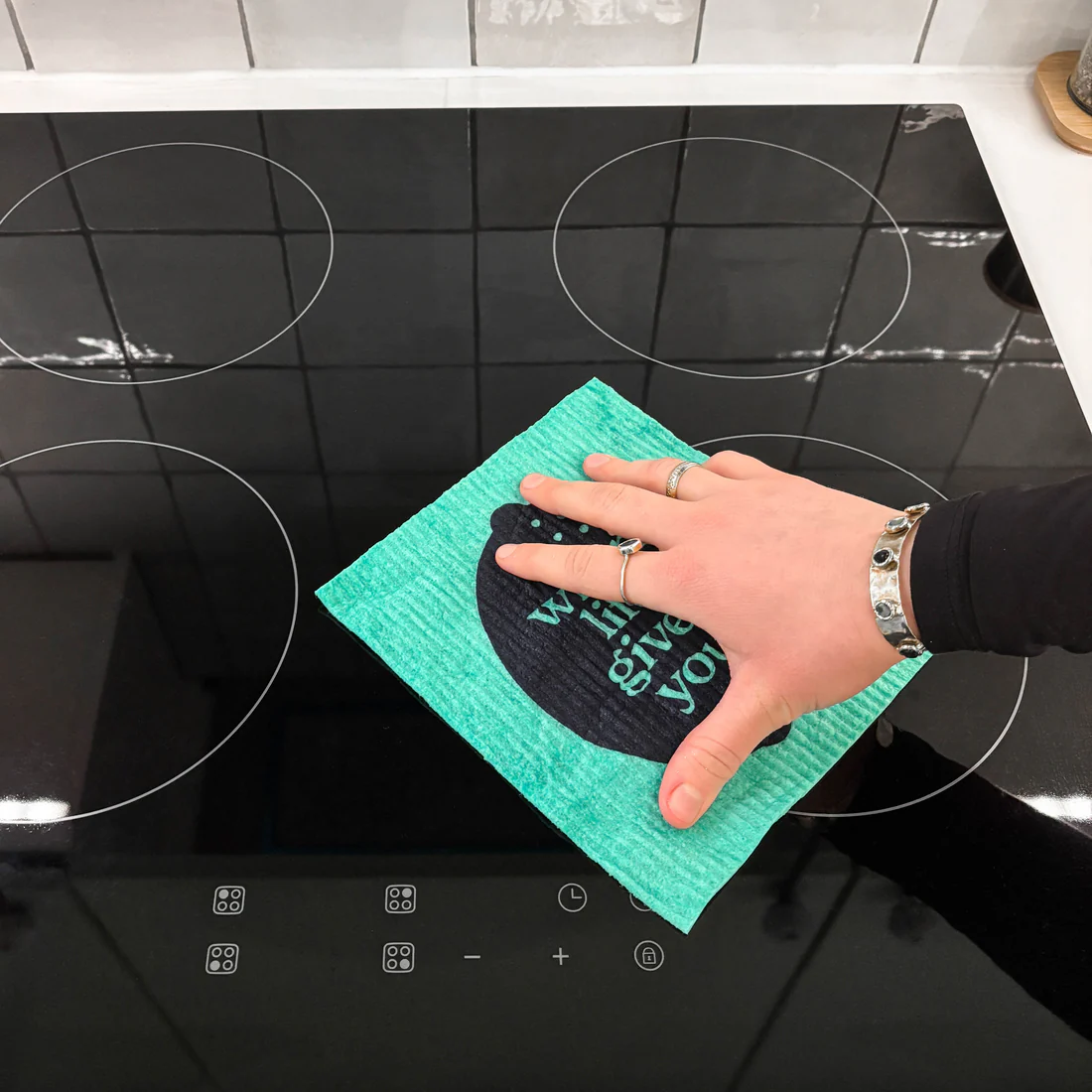
Eco Sponge Cloths are sold in 4 unique designs. These are ‘Swedish dishcloths’ that are made from wood pulp cellulose and repurposed cotton, and can absorb 13 times their weight in water.
One cloth can replace 15 rolls of paper towels, ideal to wipe up spills or washing-up. These are the alternative to those pink cloths that ‘break off bits’ when they get wet or worn.
Seep Pop-Up Sponges
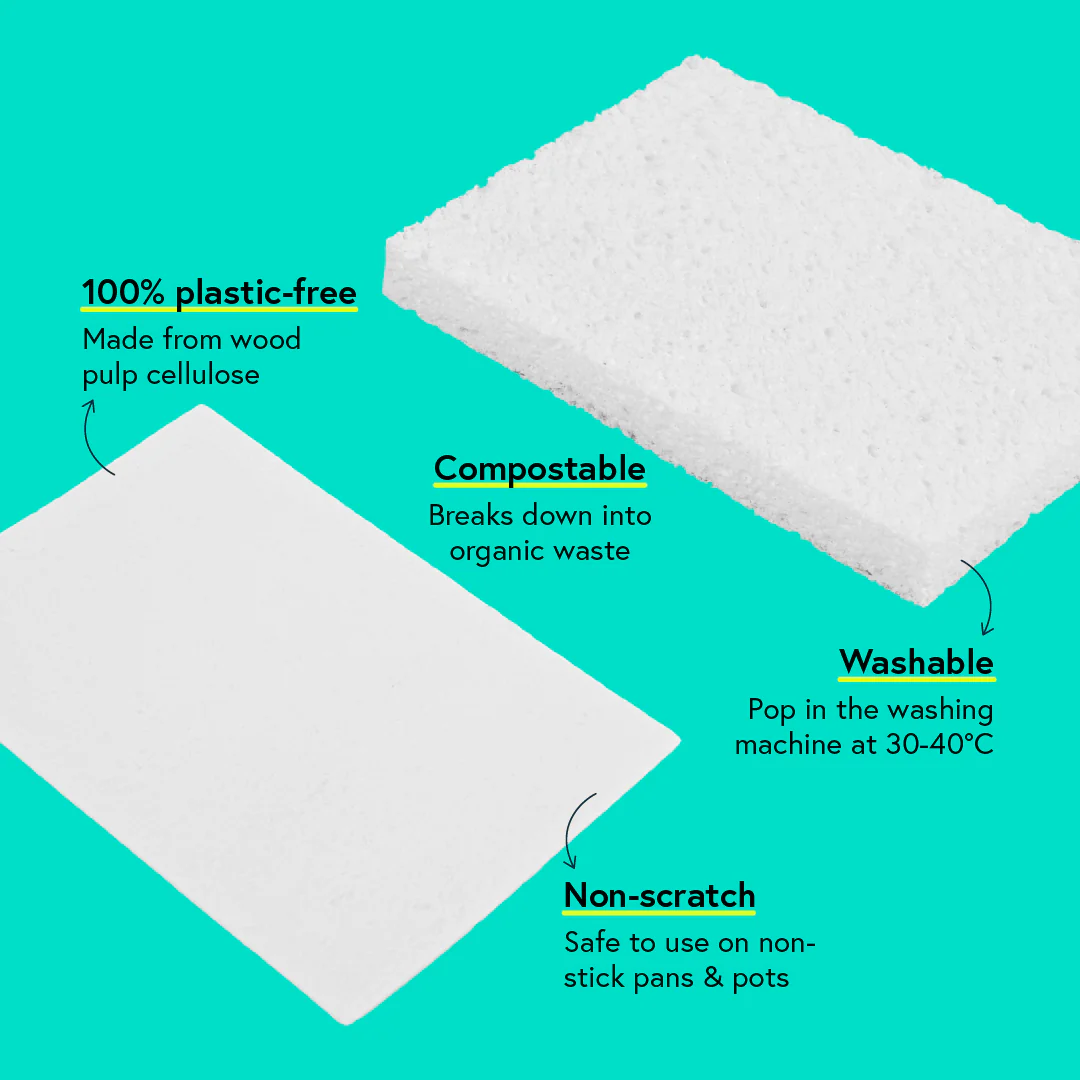
Pop-up sponges are made from wood pulp, so they come flat to save on packaging. Wet them and they spring to shape. They’re durable and plastic-free, giving you a quick clean with less waste.
Seep Eco Sponge Scourers
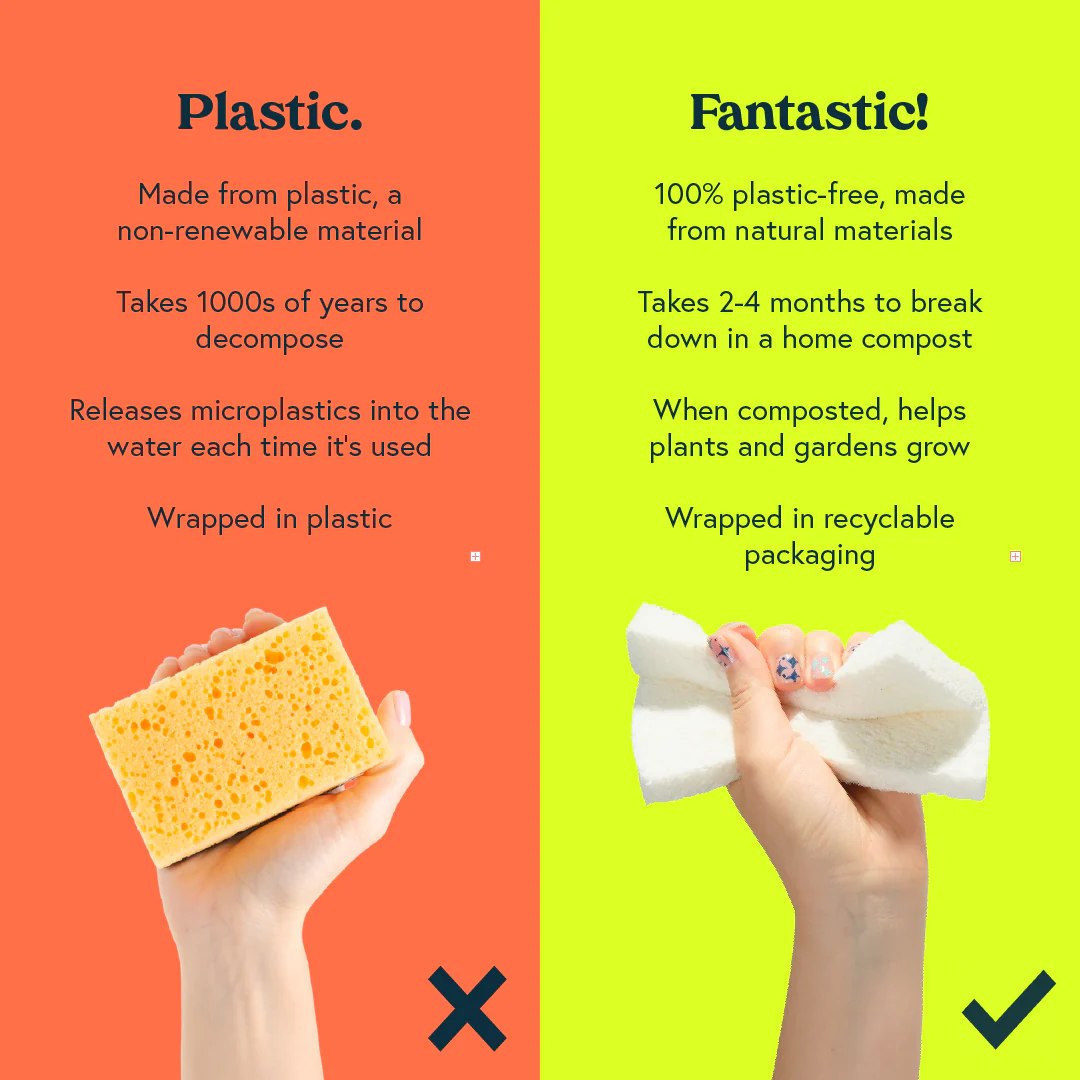
Eco Sponge Scourers (sold in a set of 12) are ideal for washing-up, containing loofah (a plant related to cucumber) and wood pulp cellulose. Safe enough to use on non-stick pots and pans. An alternative to those green plastic nylon scouring pads.
Seep Copper Scouring Pads
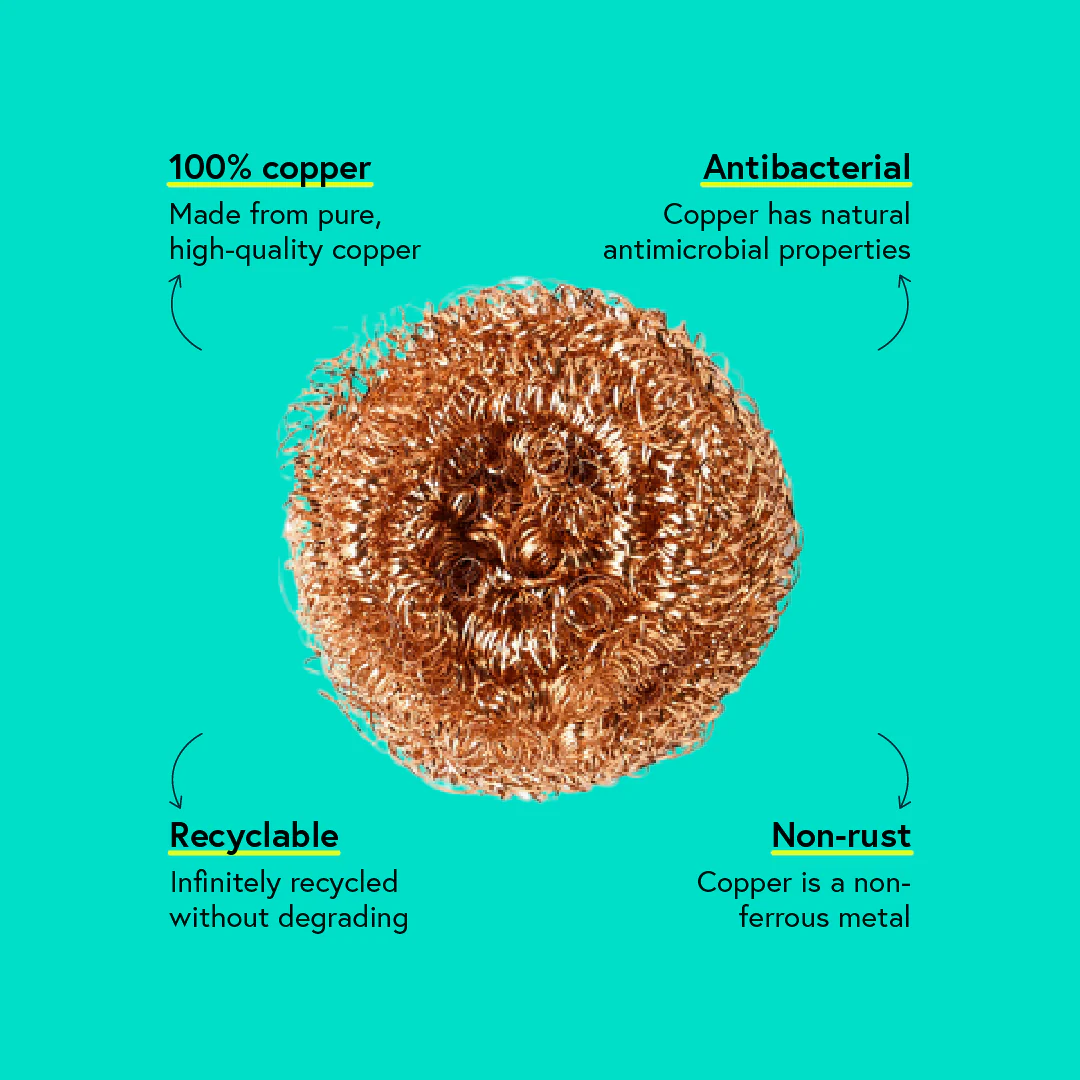
Copper scourers clean tough dishes without microplastic shed and won’t rust as quickly as steel. They’re durable, recyclable, and handy for everything from pots to oven racks. Alternative to silver ‘scourers’ sold in plastic packaging.
Seep Bamboo Cleaning Cloths
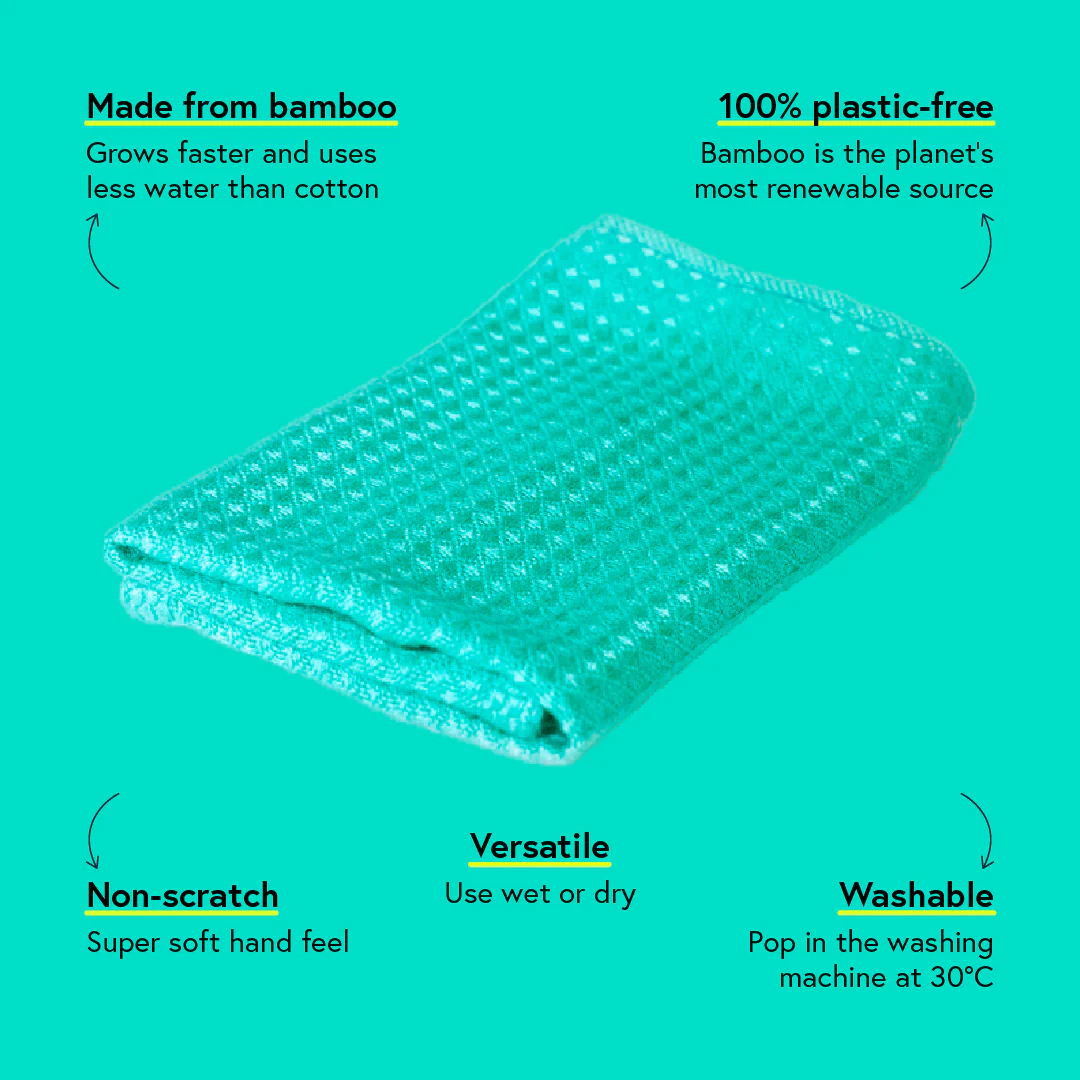
The bamboo cloths can be used wet or dry, and are easy to recycle with other textiles. Sold in a pack of three (neutral, navy, turquoise), you can keep one for each cleaning tasks so you don’t get them mixed up, and end up cleaning the loo with the washing-up cloth!



